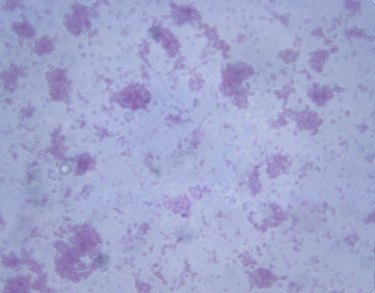
E. coli is fecal bacteria frequently found in the intestines of animals that transfers to sewage, animal waste or water, and it can make humans and other animals very sick. E. coli from human and animal waste that is present in the ground can wash into lakes, streams, creeks or other groundwater that may eventually be used as drinking water, thereby infecting the drinking water. Some water filters can remove E. coli, but not all filters do. Choosing the correct type of water filter is essential.
Whole-House, Point-of-Use, Ultraviolet Water Purifiers
Video of the Day
Ultraviolet water sterilizers remove harmful bacteria such as E. coli through the use of a lamp that produces an ultraviolet light that destroys the DNA of E. coli to prevent reproduction. The filter is a whole-house filter that can also destroy mold, viruses and microbiological contaminants in the water source. Contact a plumber about installing a UV water purifier in your home.
Video of the Day
Filters With Chemical Disinfectant Matrix
Certain water filters can be an effective method to kill E. coli as long the filter has a chemical disinfectant matrix specifically designed to remove E. coli. The filter must meet specific pore size requirements to handle the specific amount, particle size and charge of the contaminant. Contact a local plumber for recommendations on chemical disinfectant filters.
Reverse Osmosis
Many reverse osmosis filters are effective at removing E. coli from drinking water. The system uses a semipermeable membrane that moves water through the membrane while blocking other contaminants such as E. coli from passing through. Since reverse osmosis is not foolproof against protecting against E. coli, a UV system is recommended as well to protect the home water system from E. coli and other contaminants.
Boiling
If E. coli is suspected in a water supply and a filtration process is not available, the water can be boiled for a minimum of one minute to remove the E. coli before using the water for brushing teeth, washing hands, preparing or cooking food, or washing dishes. Discard any food that has previously used or been touched by the contaminated water and wash surfaces well with an antibacterial household cleaner.